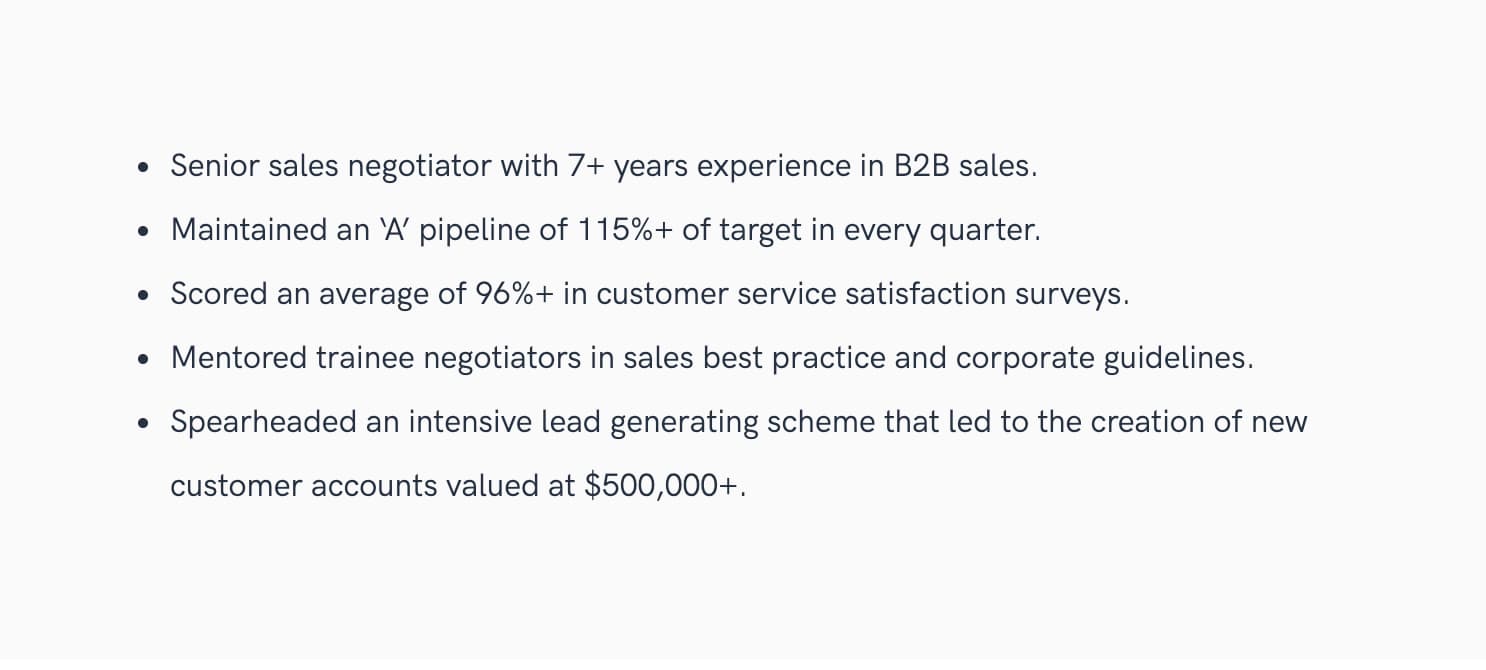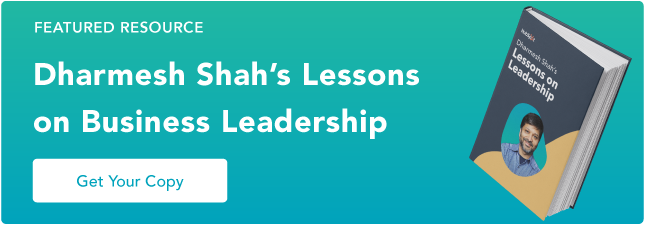Finding a new job can be a nerve-wracking experience. You pour your heart and soul (not to mention your entire work history) into this document and wait by the phone (or your inbox) for the interview requests to come in.
Fortunately, there’s a better way to communicate your skills and achievements to a potential employer than the traditional resume and summary.
Before you send out resumes for your next career move, learn how a statement of qualifications can help you stand out as a candidate.
What is a Statement of Qualifications?
A Statement of Qualifications (SoQ) is a shortlist that highlights your most applicable skills and experiences. Your traditional resume, fleshing out each qualification through your relevant work history follows your SoQ.
You can think of a Statement of Qualifications in relation to the adage “don’t bury the lead.” It comes from the world of journalism and it’s a constant reminder that you should write the most important thing first. Why? Because if you don’t hook the person reviewing your information in the first few sentences, there’s a possibility they won’t read the rest of your resume.

Your job as an applicant is to make sure that you put your most impressive qualifications at the top of your resume so the reader can’t miss them.
A well-written Statement of Qualifications will instantly capture the recruiter or hiring manager’s attention and encourage them to read your resume thoroughly and with the mindset of “this person is well-qualified for the role.”
How to Write a Statement of Qualifications
Now it’s time to dive into how to write a statement of qualifications that stands out.
1. Review SoQ examples.
Starting with a solid example can help you get started. We’ve included some Statement of Qualification examples below to aid your writing. A bit of research before you start writing will save you time in the long run and help you create the most professional-looking product possible.
2. Select your strongest skills and most impressive accomplishments.
No doubt you’ve achieved a great deal during your career. Look at the SoQ as an opportunity to highlight the most important achievements and the skills that best serve you in your role. This brings us to…
3. Tailor your SoQ to the job you’re applying for.
If you only take one piece of advice away from this article, please let it be this. Your SoQ must be tailored to the specific job you're looking to get.
You should use keywords from the job posting and touch on each of the main qualifications through your bulleted list of accomplishments. You’re basically saying, “I’m the best person for this job because I’ve already succeeded at what you need me to do.”
4. Focus on results.
It’s one thing to say that you “Improved sales for the Eastern region of XYZ Company.” It’s another thing (and incredibly more powerful), to say that you “Increased sales by 600% and became the highest-grossing sales manager in the history of the company.” If you can, demonstrate the tangible results you’ve created to be a standout candidate.
5. Use action verbs.
Use an active voice throughout your resume, being very direct in your SoQ. You can use words like:
- Reduced
- Expanded
- Managed
- Facilitated
- Improved
- Created
6. Use fewer words for more impact.
We’ve all been forced to read something that used 400 words to communicate what could have been done in five. Don’t be that person. When it comes to your SoQ, think short, impactful, and to the point.
7. Review your spelling and grammar.
Between spellcheck and (free) programs like Grammarly, your resume, and any other materials you send out into the world to represent you should be error-free.
That being said, it’s very difficult to edit your own work. Once you’ve sent your resume through a grammar program, ask a friend to review it for you. Employers want to know that your written communications are strong and if hired, you work with strong attention to detail.
Statement of Qualifications Template and Examples
When drafting your SoQ, take care to structure this section properly for maximum effect. You can use the following Statement of Qualifications template to hit all the important points:
- Your current job title or relevant certification and your years of experience
- Two or three qualifications and skills you possess that would help you excel in your desired role
- Tangible outcomes (with data) pertinent to the responsibilities you would have in this position
Let’s take a look at two different SoQs for the same person, a call center employee interested in moving to a similar role in a new company.
- Experienced call center employee with customer service skills.
- Responsible for addressing customer concerns.
- Fast and accurate data entry skills.
- Applauded for good work.
What To Do
- Detail-oriented call center representative with 7+ years of experience delivering outstanding customer service.
- Achieved an average call time 15% shorter than the team average.
- Retrained struggling co-workers resulting in a 25% decrease in repeat calls.
- Won “Highest Call Taker” award 15 months straight.
SoQs for Special Situations
One of the most common questions regarding SoQs is: “What if I’m early in my career, or making a career transition and don’t have demonstrated experience?”
Everyone was a beginner at one time. There’s nothing to be ashamed of, and you’ve probably achieved more than you think. When you have recently graduated and are just joining the workforce, it’s acceptable (and encouraged) to discuss both your education and any internship experience you’ve had. An example of this could be:
- Business Attorney graduated Cum Laude from XYZ University with a 3.9 GPA.
- Internship experience in administrative, transactional, and employment law.
- Attended multiple court appearances, including evidentiary hearings.
- Reviewed discovery and assisted in the preparation of depositions.
As you progress throughout your career, your bullet points will strengthen. As a mid-level employee, you’ll discuss personal on-the-job achievements, and then eventually, as you move into senior leadership, you’ll have leadership achievements to touch on — not only what you achieved for yourself, but how you contributed to the organization as a whole.
Of course, there are very few people in the workforce that knew what they wanted to do directly out of college and have stayed the course over a 40-50 year professional lifetime. Most workers will move into entirely new companies, roles, and industries, at least once. For those looking to move into an entirely new field, an SoQ will look slightly different.
A Statement of Qualifications example for an individual changing fields will have less to do with specific accomplishments in the industry they are choosing to leave and will focus more on the transferable skills that will appeal to recruiters in the new industry. These skills include (but are not limited to):
- Leadership skills
- Management skills
- Teamwork skills
- Communication skills
- Problem-solving skills
- Project management skills
- Interpersonal skills
Notice that every single one of these skills is important for any industry you can think of. If you can prove that you’ve demonstrated these skills in another environment, you build their confidence in your ability to perform well in a new situation.
Use a Statement of Qualifications To Stand Out From Other Applications
Applying for jobs can be a daunting task for even the most qualified individuals. Thankfully, using a strong and well-written Statement of Qualifications at the beginning of your resume can help you stand out.

![→ Click here to download leadership lessons from HubSpot founder, Dharmesh Shah [Free Guide].](https://localseoresources.com/wp-content/uploads/2022/04/4e634041-e1ce-4a85-8e65-aea12fc10b84.png)

![The Best Ways to Get Visibility from Your CMO and Other Marketing Execs Who Can Move You Forward [Data]](https://localseoresources.com/wp-content/uploads/https://no-cache.hubspot.com/cta/default/53/6baeae42-e710-4ecd-beb9-ceb2fb9f0877.png)


Recent Comments